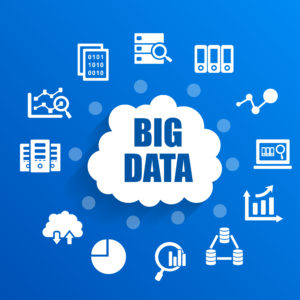
Big data is a significant part of routine operation for many organizations. The sheer amount of information available thanks to the internet allows for in depth examination of variables such as traffic flow, advertisement, personal records and more. This is especially the case for healthcare, which relies on nuanced medical records for patients to treat them effectively. Thus, healthcare IT and its related services rely on analysis of this data.
The impact on medical IT can be seen in plenty of ways because of this. Since there’s a lot to keep track of, it’s important to both healthcare organizations and patients this information be accurate. For example, data analysis can protect against fraud. Since healthcare in the United States is incredibly expensive, even the slightest errors with payments or prices can cause immense problems. Analysis of how information is processed then allows for error detection or unusual activity regarding accounts, keeping the patient safe and medical organization free of unwanted liability.
There’s also a higher demand for data accuracy, preparation, and management. While this is common with any organization model which relies on information to improve services, the need for properly distributed data is higher with healthcare. Medical data analysis demands that IT related services provide accuracy and in depth overviews not only regarding patient accounts or financial information, but also with things like lab results, treatment given, staff lists, prescriptions, and so on.
Healthcare IT is in greater demand too thanks to other factors regarding this care. As the current model stands, costs will continue to rise for medicine (estimated to be 20 percent of our GDP by 2020) while the demand for better healthcare also increases. Additionally, patients look for transparency regarding their care, a desire to know everything from where they’re treated, how they’re treated, and who treats them. Thus, a greater emphasis on accurate healthcare information will also grow, expanding the need for better medical IT.
In some cases, this data analysis is not always efficient. While organizations rely heavily on the information pools described above, truly effective IT provides meaningful data. Healthcare organizations will have to refine their IT goals or risk investing in solutions that don’t give helpful results. In other words, data analysis has to transfer to actual productivity and efficiency. Using that data must translate to better services, but when this is not the case, it becomes wasteful with both time and finances. Thus, there should be some expectancy that healthcare invests in actually useful analysis.
Data and medical IT are going to shift dramatically over the course of the coming years, mainly because of desire for transparency and how prevalent the sharing of information has become. As costs rise, so too will the expectancy for better treatment and understanding of healthcare information, something only refined analytics can provide. Stratosphere Networks is a dedicated company with experience in healthcare IT. If you are looking into what kind of options might better your practice, Stratosphere Networks can help. Contact us today at (855)599-3999 or fill out our contact form.




